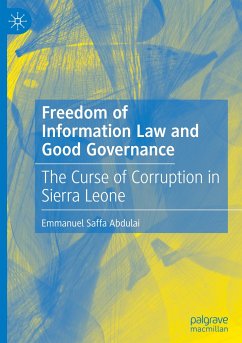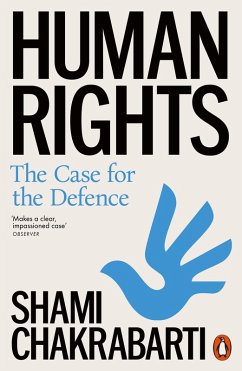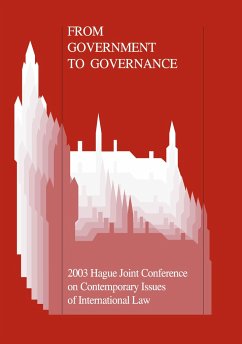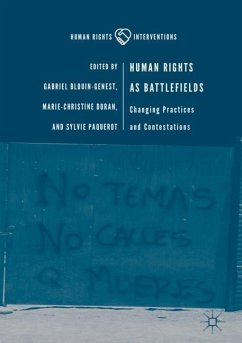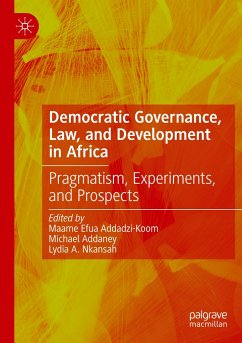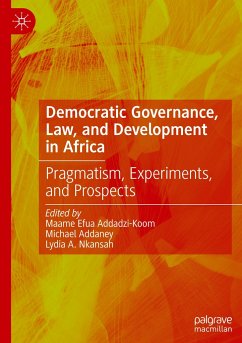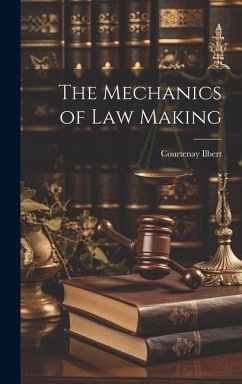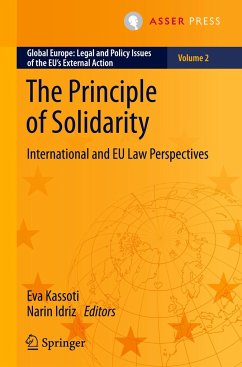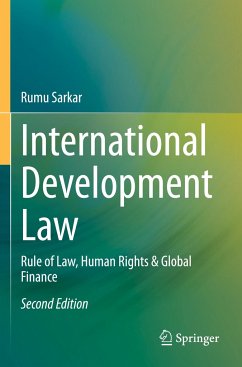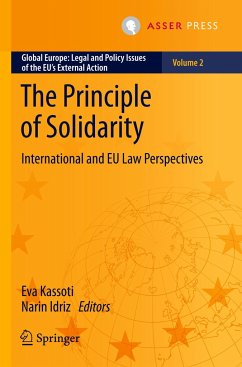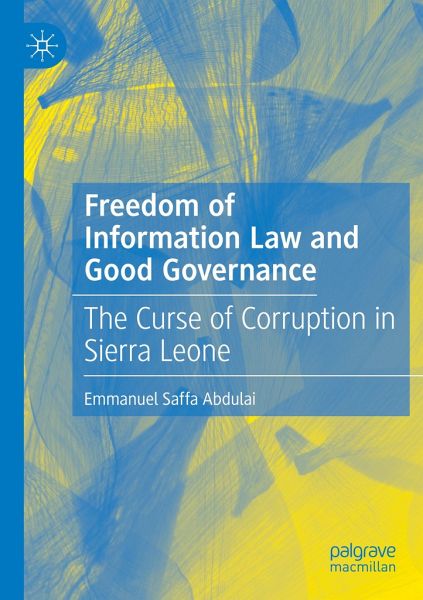
Freedom of Information Law and Good Governance
The Curse of Corruption in Sierra Leone
Versandkostenfrei!
Versandfertig in 6-10 Tagen
113,99 €
inkl. MwSt.
Weitere Ausgaben:

PAYBACK Punkte
57 °P sammeln!
This book argues that Sierra Leone's ten-year civil conflict demonstrates the criticality of freedom of information (FOI) as a facet of good governance where corruption thrives, spanning both public and private sectors, if Sierra Leone's continued security and stability are to be ensured. It argues that it was the absence of an anti-corruption tool like FOI and its attendants, transparency, and accountability, in governance generally, and in the area of the extractive industry in particular, that lead to other social phenomena which directly sparked the war. It proffers that for the continued ...
This book argues that Sierra Leone's ten-year civil conflict demonstrates the criticality of freedom of information (FOI) as a facet of good governance where corruption thrives, spanning both public and private sectors, if Sierra Leone's continued security and stability are to be ensured. It argues that it was the absence of an anti-corruption tool like FOI and its attendants, transparency, and accountability, in governance generally, and in the area of the extractive industry in particular, that lead to other social phenomena which directly sparked the war. It proffers that for the continued consolidation of peace, security, stability and development in Sierra Leone, transparency and accountability must be ensured by protecting and implementing the demand driven anti-graft FOI.
Straddling the disciplines of law, political science, public policy, and history, the book's major premise is that it was the absence of FOI in the area of governance and the extractive industry, which enabled politicians, civil servants and the politically connected to ransom and exploit Sierra Leone's mineral resources for their own profit with impunity, a state of affairs which led to underdevelopment, state collapse and an embittered civil populace especially the youth. The book postulates that as such any attempt to ensure long-term peace in Sierra Leone, should seek to avoid replicating the conditions that gave rise to that gruesome conflict- elites expropriation of national resources through endemic graft. The book proposes the comprehensive and effective implementation of the Right to Information Act 2013.
Straddling the disciplines of law, political science, public policy, and history, the book's major premise is that it was the absence of FOI in the area of governance and the extractive industry, which enabled politicians, civil servants and the politically connected to ransom and exploit Sierra Leone's mineral resources for their own profit with impunity, a state of affairs which led to underdevelopment, state collapse and an embittered civil populace especially the youth. The book postulates that as such any attempt to ensure long-term peace in Sierra Leone, should seek to avoid replicating the conditions that gave rise to that gruesome conflict- elites expropriation of national resources through endemic graft. The book proposes the comprehensive and effective implementation of the Right to Information Act 2013.



